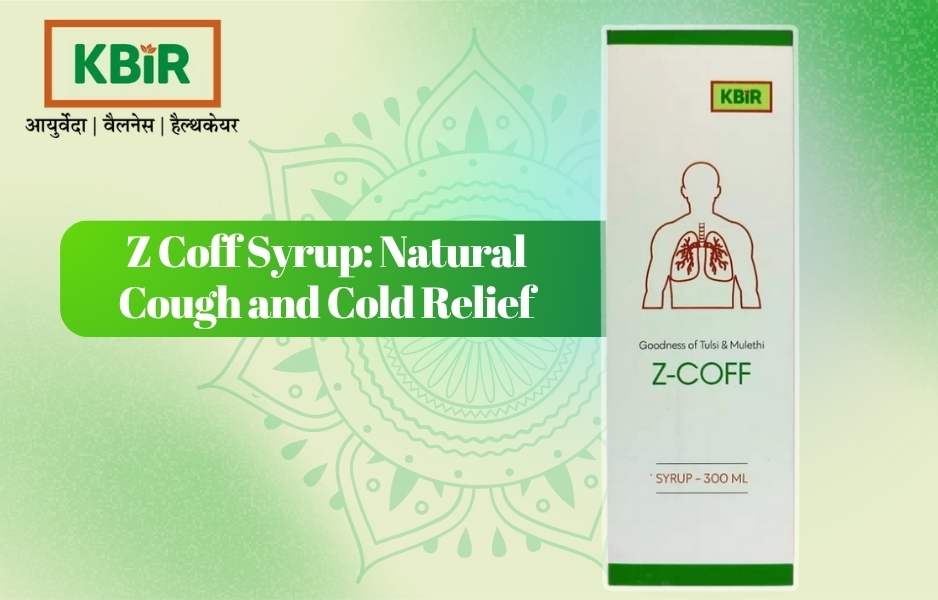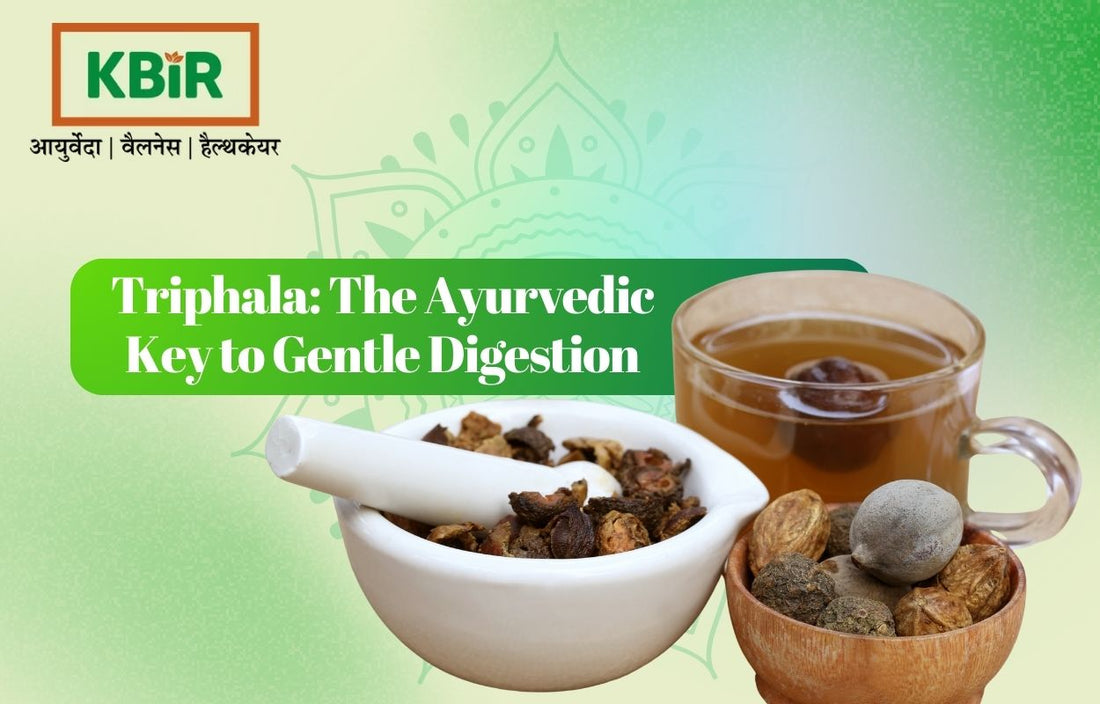






Smog Season & Your Lungs: Ayurvedic Strategies to Support Respiratory Health
Smog and changing seasons have raised the risk to respiratory health in Northern India, as they do every year. Here, we will discuss how Ayurveda interprets air toxins in relation to Kapha and Vata, and how practical Ayurvedic routines, such as nasal care, breathing exercises, and lifestyle tips, can help protect your immunity and lung health.
Why is Smog (PM2.5 / PM10) dangerous for your lungs?
PM2.5 are the particles that are ≤ 2.5 micrometers while PM 10 are ≤ 10 µm. as PM 2.5 is minute, it deeply penetrates in the airways and alveoli and can also enter the bloodstream. All this results in oxidative stress, inflammation, restricted lung function, as well as bad outcomes for COPD, respiratory problems, and asthma.
Some immediate effects that people face include coughing, breathlessness, throat irritation, asthma/wheezing, dry eyes, sore eyes, increased infection etc. Long-term exposure to this increases the risk for chronic respiratory issues and impaired lung function in children.
How does Ayurveda see “smog”?
In Ayurveda, the respiratory channels are part of the Prana-vaha srotas. The external pollutants, such as cold, moist, and heavy particles like soot and smog, are believed to be the external doshic influences that aggravate Kapha and can obstruct the smooth movement of Vata, resulting in irritation, coughing, and impaired clearing. Ayurvedic practitioners attribute blocked breathing, pollution-related mucus, and reduced vitality to vitiated Kapha, as well as impaired flow of Prana. A daily Ayurvedic routine helps protect the nasal passages and supports the lungs.
Evidence-backed practical interventions (Ayurvedic + modern medicine)
Below, we present some practical measures that combine Ayurvedic practices with modern science, enabling individuals to utilize preventive measures, support, and medical assistance when needed.
Keep the nasal gateway protected with Nasya / Pratimarśa Nasya (oil drops)
Why is it important?
The nasal mucosa is the first line of defense, and so oil instillation can lubricate and reduce irritation. Even a small dose of nasya is used to nourish the nasal mucosa and help with respiration. Modern studies indicate that sesame oil can be used to enhance mucosal comfort and alleviate symptoms.
How to do it?
Use a filtered, clean, medicated oil, or even plain sesame oil, 2-3 drops in each nostril in the morning after clearing your nose. The best way to do it is to lie back a little and breathe deeply after instilling, so that the oil spreads easily. Avoid this if you have a nosebleed or excessive congestion.
Breathing practices - Pranayama (gentle, safe exercises)
Why is it important?
Controlled breathing exercises help improve airway functioning, control coughs, and maintain lung volumes, while reducing signs of chronic respiratory disorders. Pranayama further reduces stress, thereby enhancing immune function.
Practice Anulom Vilom for 5-10 minutes every day, but avoid doing it in an outdoor setting. Then, practice bee breathing, also known as Bhramari, for 5 rounds to calm the throat and reduce stress. Lastly, practice diaphragmatic breathing slowly for 5-10 minutes. This is very helpful in cases when you have anxiety or feel shortness of breath.
Avoid very forceful breath work if you have severe infection or high hypertension. Always keep it gentle and safe.
Warm herbal decoctions & teas
You should incorporate herbs like Mulethi, Tulsi, Peppermint, Ginger, and Turmeric into your daily routine, as they possess anti-inflammatory and soothing properties that aid in respiratory care and offer relief from symptoms. Turmeric/ginger helps reduce inflammation,, while Tulsi is traditionally used as atraditionally respiratory supportive.
Boil 1 cup of water with 1-2 slices of fresh ginger and a handful of tulsi. Strain the mixture and add lemon, turmeric, or honey as needed. Sip this warm 2-3 times a day or till the exposure is high or the symptoms are seen.
As for persistent mucus/cough and throat irritation, you can take Z Coff syrup that is made with Tulsi, mulethi and other natural herbs and that soothe the throat and helps clear phlegm.
What to do indoors? Humidifiers, filtration & practical home steps
Humidifiers - Adding some humidity helps reduce the dryness and irritation caused by dry winter air. It is also observed that humidifiers can alleviate nasal issues, but they must be kept clean to prevent microbial growth.
House plants and fumigation: Plants help a lot, but they should not be relied upon solely. Ayurvedic fumigation with dhoop/neem/turmeric/guggal can help to sanitize the indoor air and it is advisable to avoid smoking in unventilated rooms.
Air filtrations: HEPA filters and air purifiers with actual HEPA capture PM2.5 and are recommended for use in living rooms and bedrooms when the AQI is poor. Open the windows only during midday when there is plenty of sunshine and if the AQI improves.
Masks & outdoor routines
For protection against smog, N95 or equivalent masks should be used. Ensure that the mask is fitted well. Also, avoid any outdoor exercises or exertion when the AQI is poor. If you must be outside, travel in closed vehicles and always wear a mask. Elderly, children, pregnant women, and those who have heart/lung disease should be indoors on poor AQI days.
Diet & lifestyle
Always try to have warm, light, and easy-to-digest foods like soups, warm teas, and khichari to prevent Kapha stagnation and support digestion (agni). Avoid oily, heavy foods that may produce more mucus.
Include immune-supporting foods in your diet, such as seasonal vegetables, garlic, tulsi, citrus fruits, ghee, and fermented foods. Additionally, for a daily routine, use nasal oil in the morning, take a warm foot bath before going to bed at night, cover your mouth and head when going out, and get 7-8 hours of proper sleep to keep your ojas strong. Continue sipping warm water throughout the day to help thin the mucus and support its clearance.
Gentle Ayurvedic cleanse
Here is the gentle cleanse plan for healthy adults. Avoid if you are diabetic, pregnant or have any chronic disease:
3 days example plan
- Morning- 2 drops nasya with sesame or anubaila in each nostril, some warm lemon ginger tea
- Breakfast can be suji upma or khichari
- A midday meal can have warm vegetable soup
- Then followed by some pranayama, steam inhalation with tulsi/peppermint (but to be done indoors)
- And at bedtime, warm turmeric milk/chamomile tea with light meal
You can use Fevereel for immune support and low-grade fever, as well as Jwar Har for fever and systemic fatigue due to seasonal infections. Both of these can support your immunity, but you need to keep in mind that they are not substitutes for medical treatment in cases of pneumonia or a high fever.
When to see a doctor?
If you experience persistent or high fever, breathlessness, a productive cough, chest pain, or altered mental state, it is recommended that you seek medical help. Herbal support and home remedies are only for mild to moderate symptoms.
How Kbir Wellness helps?
Z coff syrup
This is the cough syrup that contains mulethi, tulsi, and other herbs for relieving throat irritation/cough as well as for expectoration. This is suitable if you are seeking symptomatic relief from throat irritation and cough, and provides good support through warm decoctions and steam inhalation.
Jwar Har tablets
These are fever tablets containing tulsi, neem, and giloy, traditionally used for controlling fever and immune modulation. You can consider it for immune support during seasonal infections.
Fevreel syrup
This is the herbal formula used for immune support and mild fever during seasonal illnesses, as well as for systemic weakness accompanied by respiratory infections.
Quick checklist
- Keep an N95 or equivalent mask in your bag; wear it in traffic/peak hours.
- Start Pratimarśa Nasya (2 drops sesame-based medicated oil) each morning.
- Sip warm ginger + tulsi decoction 2–3 times/day.
- Use a clean humidifier at 40–50% RH and run a HEPA air purifier.
- When cough/mucus appears, combine warm steam, Z-COFF syrup per label, rest, and hydration.
- If fever or systemic weakness appears, consider Fevreel/Jwar-Har as supportive and see a doctor for high/persistent fevers.

